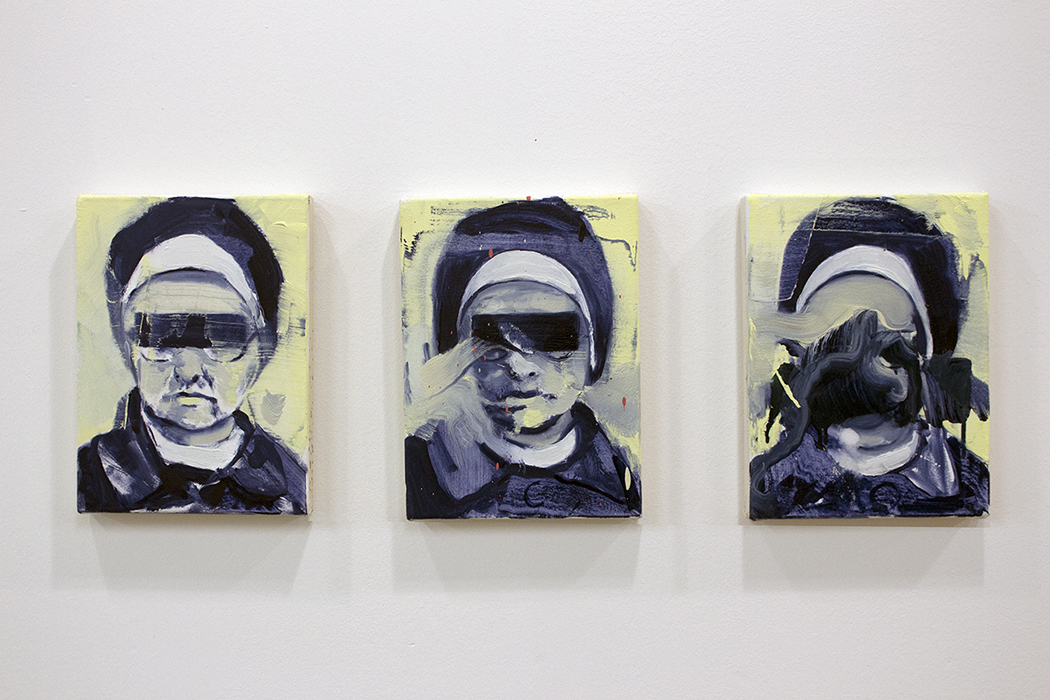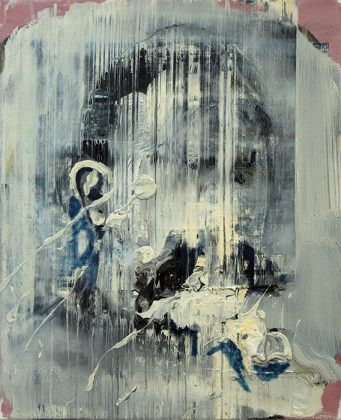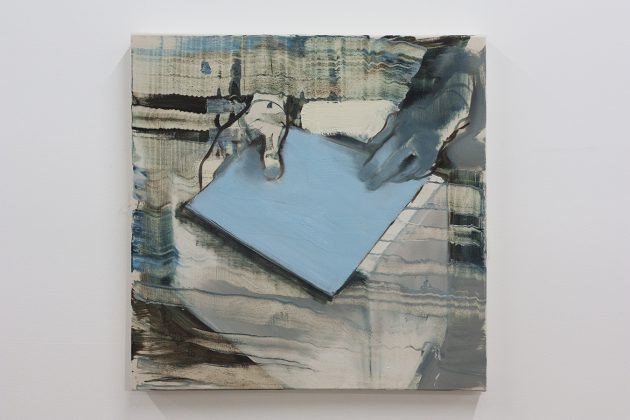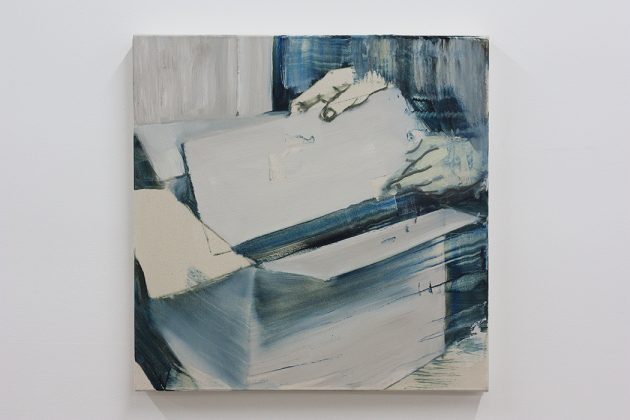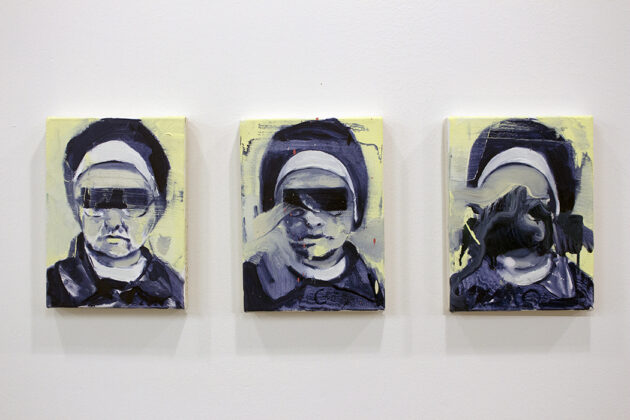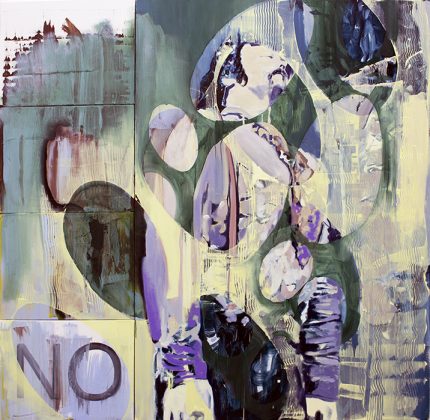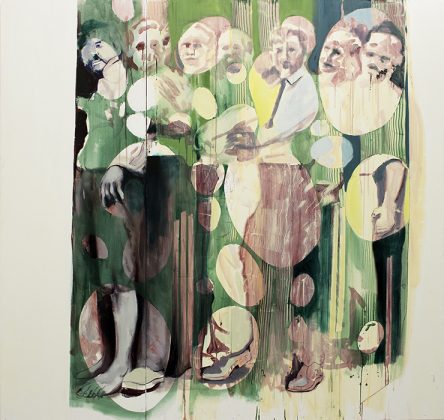Born in Poland in 1984, Bartosz Beda relocated to the UK in 2008. After graduating with a MA in Fine Art in 2011, he was selected for the 2012 Catlin Art Guide as one of the most promising emerging artists in the UK. In 2012, Beda was short-listed for Saatchi New Sensations exhibition in London for most exciting graduate students in the IK, and won the esteemed Towry Award for the Best of North of England, as well as a six-month scholarship to Academy of Fine Arts in Dresden, Germany. Beda had solo exhibitions at Galleria Liebre, Spain (2013), BAC Gallery, Colombia (2015), Jackson-Teed, England (2016), Rosemary Duffy Larson Gallery, USA (2017) and received a fellowship from Fondazione perl’Arte in Rome, Italy in 2016.
This summer you will join an artist-in-residency program at Goggle Works in Reading, PA. Do you have any plans for what you will paint there? Would you tell us what your expectations for the residency are?
The residency will begin in June and will end in August. The residency will be for me a time to focus on something new, and I am hoping that I can push my boundaries in painting. I will also explore printmaking and its use for my painting. I do not want to become a printmaker, but I definitely think that there is something in the printmaking medium that can be directly used in painting in the way that nobody had ever thought about. I am going to find out if there is anything for me in this new to me medium.
Residency is a refreshment for the soul. My expectation is to learn something new about painting and the city I will stay in for ten weeks.
Why does Art Matter?
Why should art matter in the first place? This question reminds me of George Carlin, an American comic, who makes fun of American culture. Maybe we should do the same with art. We created in our society something of sort of religion from art that we try to celebrate no matter what. Maybe art shouldn’t matter, and then the importance would increase in value again.
What’s the nature of aesthetic intelligence, and how does it relate to other sorts of intelligence?
I would be interested to know what other people think of aesthetic intelligence and then form my own opinion about it. If the intuition is enough to follow the nature of our senses, then do we need another definitions and phases to understand the higher performance for art and other things? I think that we are performing every time we do something, and it is a work in progress. Answering this question is a form of using my aesthetics with all senses I have, and I perform now believing I bring something valuable to the culture and arts. If there is something in it that relates to other sorts of intelligence, then maybe we should ask those who explore it more, as I feel not in a position to talk about it.
Should we recognize a difference between fine art, commercial art, and other forms of art?
Yes, to distinguish what’s bad in art. No, to make sure that we do not create differences between academical artists and commercial artists who are exposed to high end collectors and private investors who make some art important with their money. It’s like a question about which peanuts are better in taste or which are healthier. Too much of them make us sick and perhaps the same with art.
Do you try to communicate emotions? How central is emotional communication to the nature of your art?
I keep emotions in the studio with the artwork I make. In that sense, I communicate emotions within myself and the work I produce. Once paintings leave the walls of my studio, I try to keep it open to some degrees of interpretations and emotions that comes with works. This question brings me back to aesthetic intelligence. I think that emotion is a state of mind that can be changed. What appears to be emotional now, has a different performance of aesthetics tomorrow. That is why it’s so difficult to communicate emotions in the art, as if I set a specific communication in the piece of art that, for instance, will refer to positivity, that does not necessarily have to be a depiction of positivity in the eyes of other people. I think that there is a very thin layer between the nature of art and emotional communication.
“The philosophy of my art comes from my origin as a Polish. I have that certain type of genes in my blood that create different forms of life and aesthetic”
How closely is your artistic expression and meaning tied to culture? To cultural ideas and philosophy? To cultural “forms of life”?
I made all my way to the United States starting from Poland then through Germany, England and then Italy. It has been an adventure for the search of perfect momentum for my life, where I expose myself to carpe diem, stoicism, and interpretation of my dreams. My life is influenced by great philosophers that I came across reading, and they became influencers for my subconscious.
I grow up in a culture that is a part of my expression and meaning in painting. The philosophy of my art comes from my origin as a Polish. I have that certain type of genes in my blood that create different forms of life and aesthetics. This baggage is confronted with every new thing and culture I am exposed to. It is nice to know that my point of view to this world is not only based on one culture, but on a combination of all aspects of life.
Figurative art can represent the real world in a totally distorted manner or be reinterpreted subjectively by you the artist, how is your world view as an artist that has painted in many different countries, does this influence the art you produce?
I always thought that it is important to choose a city that we want to live in no matter what will happen to the world. The place where I live influence me and definitely influence my art. We present the reality that surrounds us in the work we do. I reflect it in my paintings. Everything has its place and origin, and nothing is wasted. We come from energy, and we go back to the same source of energy. I recently talked to my friend about life in different cities. She mentioned something very simple, but very important to how we perceive ourselves. She said that young people get easily bored with the city where they live in and where they explored everything. If there are no many opportunities to grow, then there is a natural need to leave and move elsewhere. It has its origin since man lived in the cave. We immigrate, as we have expectations that there is something that fulfills us and our subconscious. Whether there is something for us to fill fulfilled, that’s another story. Answering the question, yes, countries, cities, and people influence my art.
To find out more about Bartosz Beda, you can follow his Instagram, Facebook and YouTube.
